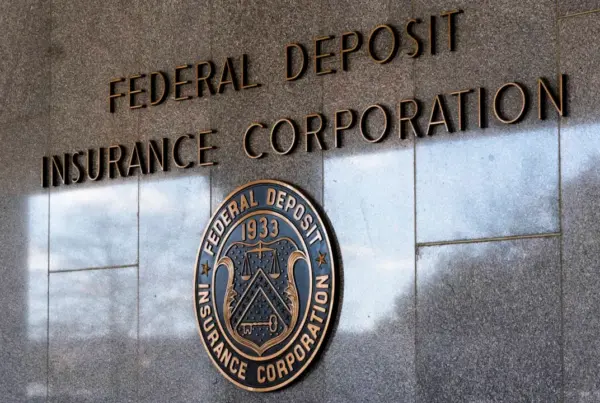On February 10, 2021, the Federal Deposit Insurance Corporation (FDIC) proposed significant amendments to its regulations concerning brokered deposits, aiming to enhance the stability and integrity of the banking system. This regulatory action is particularly significant as it seeks to address the evolving landscape of financial services, where technology and new market entrants have transformed traditional banking practices.
Historically, the FDIC has maintained a regulatory framework for brokered deposits to mitigate risks associated with liquidity and ensure that deposit insurance is effectively administered. The proposed rule builds upon previous amendments and enforcement actions, reflecting ongoing concerns about the potential risks posed by non-traditional deposit channels. The primary issue addressed by this regulatory update is the need for clearer definitions and stricter oversight of deposit brokers to protect the financial system.
Key Regulatory Changes & Analysis
1. Expansion of the Definition of Deposit Broker
The proposed rule broadens the definition of “deposit broker” to include entities that facilitate the placement of deposits with banks, regardless of whether they receive a fee for their services.
- Previous Definition: Under the prior rule, a deposit broker was defined primarily as an entity that received a fee for placing deposits.
- New Definition: The new definition encompasses a wider range of activities, capturing more entities under regulatory scrutiny.
This change is anticipated to impact a variety of stakeholders, including banks, fintech companies, and other financial institutions that engage in deposit placement activities.
2. Enhanced Reporting Requirements
The FDIC proposes new reporting obligations for institutions that utilize deposit brokers.
- New Reporting Obligations: Banks will be required to provide detailed information about their relationships with deposit brokers, including the volume of deposits placed and the fees paid.
- Impact on Compliance: This increased transparency aims to facilitate better monitoring of brokered deposits and their potential risks.
3. Restrictions on Brokered Deposits for Certain Institutions
The rule introduces stricter limitations on the acceptance of brokered deposits by institutions that are less than well capitalized.
- Capital Requirements: Under Section 29 of the Federal Deposit Insurance Act, banks that do not meet capital requirements will face restrictions on brokered deposit acceptance.
- Risk Mitigation: This measure is designed to safeguard the financial stability of vulnerable institutions.
Legal and Industry Implications
The proposed regulatory changes will impose new compliance burdens on financial institutions, necessitating adjustments to operational practices and reporting systems. Key implications include:
- Compliance Costs: Institutions may incur significant costs associated with updating compliance programs and systems to meet the new reporting requirements.
- Legal Risks: The expanded definition of deposit brokers may expose institutions to increased scrutiny and potential enforcement actions if they fail to comply with the new regulations.
- Litigation Considerations: Financial institutions should remain vigilant regarding potential legal challenges arising from the implementation of these rules.
To mitigate risks, affected parties should consider engaging legal counsel to assess compliance strategies and prepare for potential regulatory audits.
Recommended Actions & Compliance Strategies
Affected financial institutions should take the following steps to ensure compliance with the proposed rule:
- Review Current Practices: Conduct a comprehensive review of existing relationships with deposit brokers to identify any necessary adjustments.
- Enhance Compliance Programs: Update compliance programs to incorporate new reporting requirements and definitions.
- Train Staff: Implement training programs for relevant personnel to ensure awareness of the new regulations and their implications.
- Monitor Deadlines: Stay informed of key deadlines for compliance and regulatory filings.
- Participate in Public Comment: Engage in the public comment process to voice concerns or support for the proposed rule, as this may influence final regulatory decisions.
Conclusion & Next Steps
The FDIC’s proposed changes to brokered deposit regulations represent a significant shift in the regulatory landscape for financial institutions. Key takeaways include the expanded definition of deposit brokers, enhanced reporting requirements, and new restrictions for less than well-capitalized banks.
The timeline for implementation remains uncertain, pending the conclusion of the public comment period and any subsequent adjustments to the proposal. Stakeholders should prepare for potential legal or legislative actions that could affect the enforcement of these rules. As the regulatory environment continues to evolve, ongoing vigilance and proactive compliance measures will be essential for affected parties.
For further updates on this regulatory development, financial institutions are encouraged to monitor communications from the FDIC and consult with legal experts to navigate the complexities of compliance.


